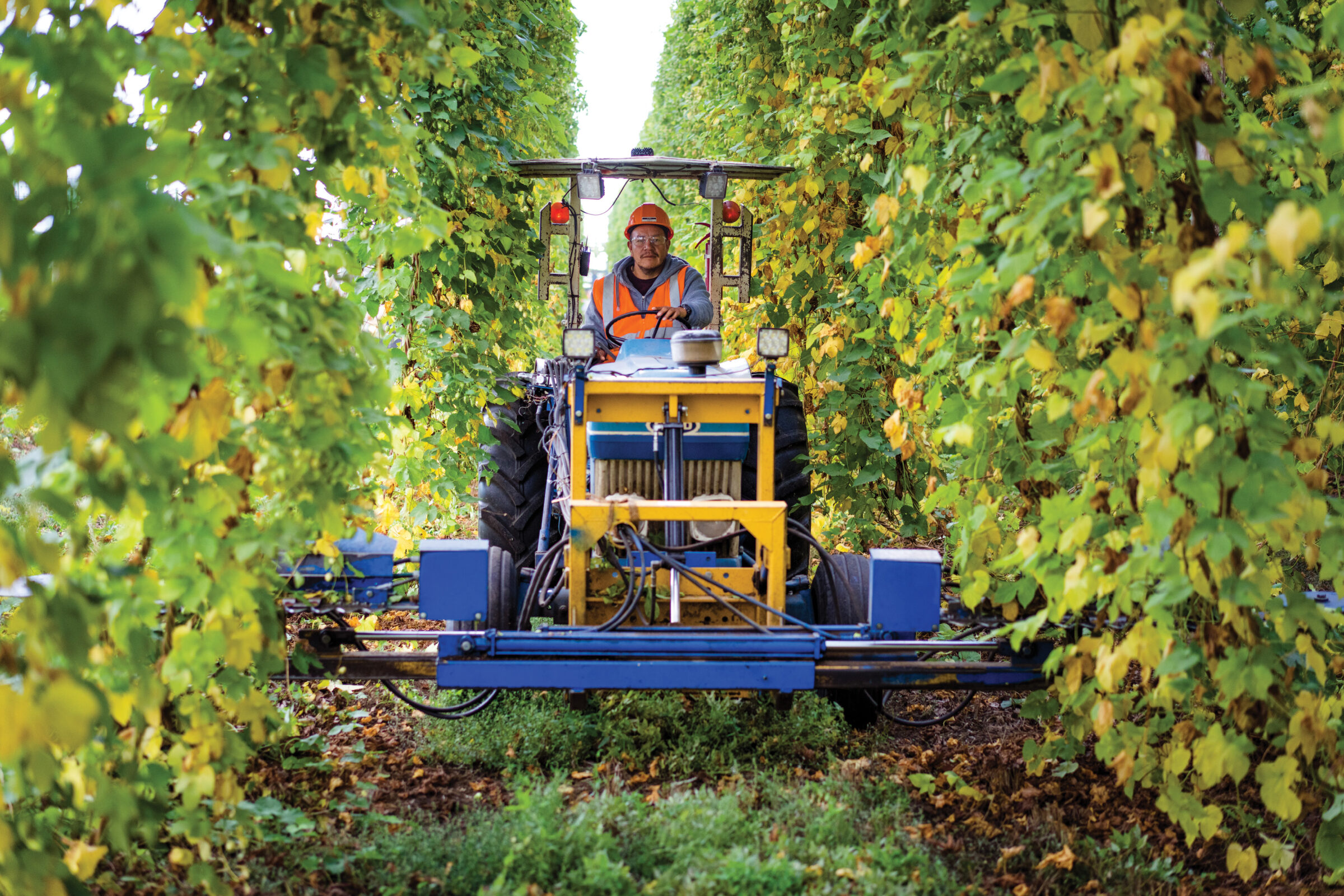Of Washington’s 39 counties, only five have broken the threshold of 500,000 residents.
These counties hold a majority of the state’s 7.7 million population, as they are home to over 5.1 million residents. Over the past three years the state has been working with local economic development partners to build economies that capitalize on the capacity and character of communities outside of the urban scope.
“Our primary focus is on addressing challenges in rural areas through the lens of economic development, as many of these regions encounter issues related to job creation, industry diversification and overall economic sustainability,” says Washington Office of Economic Development and Competitiveness Assistant Director Chris Green.
One example of this approach is Washington’s Innovation Cluster Accelerator Program (ICAP), which debuted in 2022, focusing on regional industry strengths across the state and seeks to foster a collaborative ecosystem. By enhancing connectivity to create these clusters, businesses, talent, entrepreneurs and academia can easily find support and resources in their areas to drive innovation.
Rural Renewal
This year the program has taken on a new focus, in rural communities.
ICAP Launch, a new cohort of the initial ICAP Program, is partnering with four teams — comprising industry and community leaders, economic development organizations, research institutions and non-profit organizations — to begin developing early-stage innovation cluster strategies in rural communities. Each team chosen to participate in the year-long program focuses on a specific industry and has received $50,000 in grant funding to kick off this initiative.
One of the selected teams is a partnership between social service organization Room One and food systems non-profit Blue Sky Minds. Through their joint efforts in the town of Mazama, located in Okanogan County, this team strives to strengthen the rural regions’ food ecosystem.
At 5,281 square miles, Okanogan is the third largest county in the nation. Although geographically large, population density is sparse. The population of the county currently stands at over 42,600, while the unincorporated community of Mazama holds just over 150 residents.
“The challenges have been being a rural community that has one to three mountain passes that separate major towns in our county,” says Blue Sky Minds Founder and Director Maria Hines. “It can make it difficult to physically work together and it also makes it harder to make sure we’re being inclusive when we’re so spread out.”
Here, agriculture and forestry are the top industries, employing nearly 5,800 people. “We’re an agriculturally rich region with the main crops being apples, wheat and cherries,” says Hines.
Nonetheless, food insecurity is an unfortunate reality faced by some residents. Room One is a resource that has worked to combat these challenges, creating solutions like its Food Access Program, which connects local farmers to residents to receive free, fresh produce throughout the summer.
With this knowledge, food access and equity in the local food system represent the basis of collaboration for the team.
“We’re focusing on exploratory research for a food hub in the Okanogan region,” says Hines. “Creating this network will allow for more collaboration among food producers that creates benefits like shared resources, marketing and distribution of local foods in our region.”
Hines brings over 20 years of experience as a chef, entrepreneur and food and beverage consultant in Washington to the table. With roots firmly planted in the state’s Okanogan region, she has access to a vast network of local farmers, ranchers, chefs, fishers, food distribution companies, academia, government and non-profit organizations. While this ecosystem exists at a basic level, there are still challenges that must be addressed for its benefits to become sustainable and equitable for residents.
By looking to create an innovation cluster here the team hopes to draw attention to these local and regional crops, create new jobs and increase wages, thus nourishing its food economy. In turn, creating demand for increased food production for quality, diverse and healthy foods that benefit residents, schools and local food banks.
Sustainable, Uncrewed and Circular Clusters
Beyond food, the three other teams in ICAP Launch focus on industries prevalent to their respective regions.
About seven hours west of Okanogan, in Clallam and Jefferson Counties, the Clallam County Economic Development Council leads the team in establishing a Natural Resources Innovations Center. By introducing this asset to the Port Angeles region, the center will serve as a collaborative location for businesses, organizations and research institutions to transform the forestry industry with a focus on sustainability in harvest and manufacturing processes.
The Mid-Columbia Economic Development District, which entails Dalles, Oregon, Klickitat and Skamania Counties, will explore a cluster focused on the uncrewed aerial systems and vehicles industry. With a variety of large, midsize and startup companies within the industry, this team is looking to boost innovation and explore untapped markets to strengthen the region’s sector. Strategies to build this cluster include creating a thriving tech community aided by the Gorge Tech Alliance, promoting and supporting member businesses and advocating for STEM education.
The last team falls within Okanogan County, 28 minutes southeast of Mazama in the town of Twisp. It is here that non-profit organization TwispWorks is looking to address the effects and causes of climate change in the area. The team consists of local industry leaders, non-profit leaders, institutions and local businesses focused on identifying opportunities to attract innovative businesses and new industries.
Operating from a 6.4-acre, former USDA Forest Service campus, the community will develop this cluster and create cultural programs in line with a circular economy.

